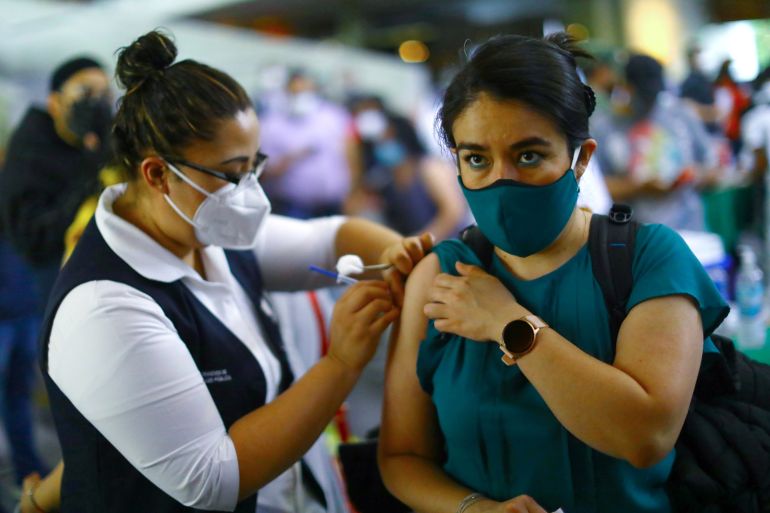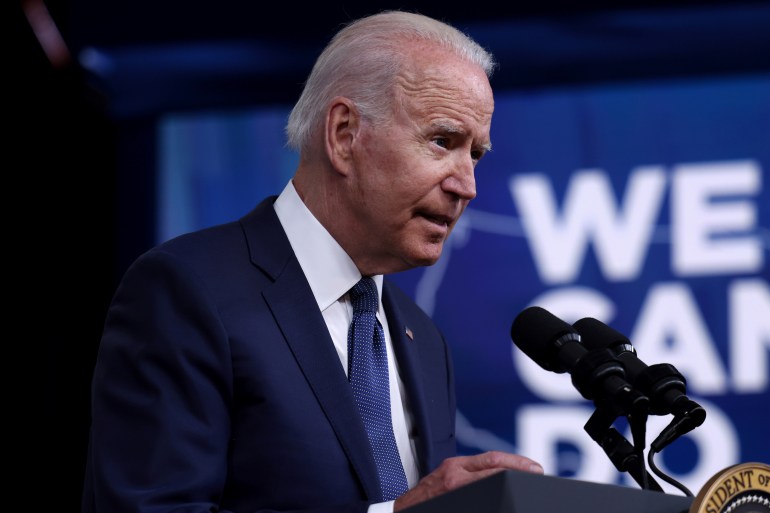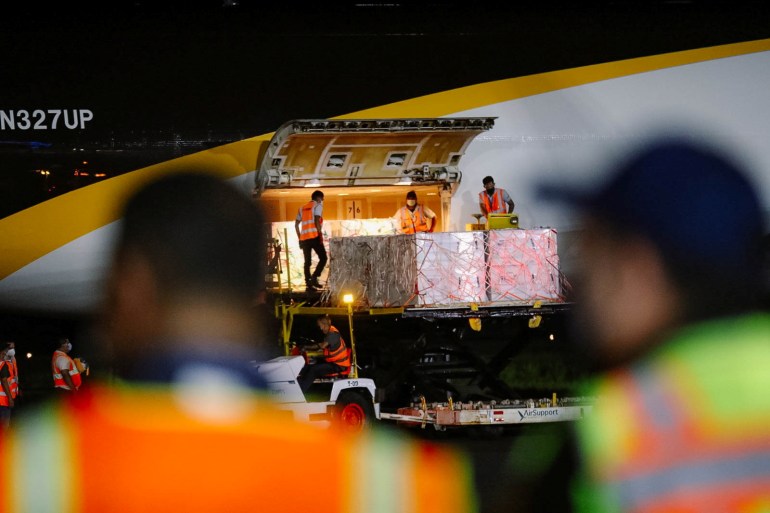More than half of global COVID-19 deaths in the Americas: PAHO
PAHO director says ‘pervasive inequality in access to health’ needs to be addressed in order to overcome the pandemic.

Despite a decline in overall COVID-19 cases and deaths in the Americas, last week the region accounted for more than half of global deaths from the disease, according to the Pan American Health Organization (PAHO).
During a regular news briefing on Wednesday, PAHO Director Carissa Etienne said inequity in access to healthcare and vaccines, is largely to blame.
Keep reading
list of 3 itemsContinued increase in COVID cases and deaths in LatAm: PAHO
COVID surge in Americas could be ‘even larger’ than in 2020: PAHO
“This is a clear sign that the toll of the pandemic in the Americas continues to devastate families and communities, even as parts of our region are experiencing some relief,” Etienne said.
Some countries in South and Central America, where the pandemic 🦠 has hit particularly hard, have not yet been able to access enough vaccines 💉 to fully vaccinate 3% of their populations. @DirOPSPAHO #COVID19
— PAHO/WHO (@pahowho) July 7, 2021
According to PAHO’s figures, a quarter of people in the Americas region have been fully vaccinated, and at least 600 million doses have been administered. But more than half of these doses have been in the United States.
While 67 percent of adults have received at least one vaccination shot in the US, several countries, particularly in Central America, have yet to make meaningful advances in their vaccination campaigns.
“We must celebrate that a nation that has been so heavily impacted by the pandemic was able to turn the tide, but we can’t close our eyes to the stark inequities on vaccine access,” Etienne said.
El Salvador, Honduras, Panama and some parts of Guatemala are seeing a rise in cases, Etienne said. And Cuba is reporting the highest number of new cases since the beginning of the pandemic.
Haiti, a nation that has been thrown into turmoil after President Jovenel Moïse was assassinated in his home, is seeing a slight decline in coronavirus cases after a sustained surge. The nation has yet to receive any vaccination doses, and the recent escalation in violence is further challenging the response to the pandemic, Etienne said.
PAHO says some 24 million doses have been administered across the region through the COVAX sharing mechanism so far, but many more are still needed.
“Millions of people in Latin America and the Caribbean still don’t know when they will have a chance to be immunised,” she said.
More than 600,000 people have died from COVID-19 in the US, more than any other country in the world, according to a tally kept by Johns Hopkins University. But death rates have been steadily declining since the nation made major headway in its vaccination campaign earlier this year.

Amid a decline in demand for shots and international pressure to share doses, the administration of President Joe Biden has pledged to share millions of doses to countries around the world who need them.
Last month Biden announced that the US would contribute 500 million doses of the Pfizer vaccine to the COVAX programme to 92 lower-income countries as well as the African Union.
On Wednesday, White House press secretary Jen Psaki announced the allocation of more doses in the region.
“We’re sharing more doses in Latin America, one million Johnson & Johnson doses will be headed to Bolivia on Thursday and one million doses of Pfizer will be sent to Paraguay,” Psaki told reporters.

Etienne said El Salvador received 1.5 million doses this week from the US through COVAX. She also lauded Mexico for donating vaccines to Central American countries, including Honduras.
She added that COVAX expects an additional 60 million doses from the US and more than 11 million from Japan, contributing to a total of 143 million doses to be administered in the region soon.
“The vaccines we have at hand work remarkably well and will help us overcome the pandemic,” Etienne said. “But only if we take this opportunity to address the challenges that have long held us back, especially the pervasive inequality in access to health.”